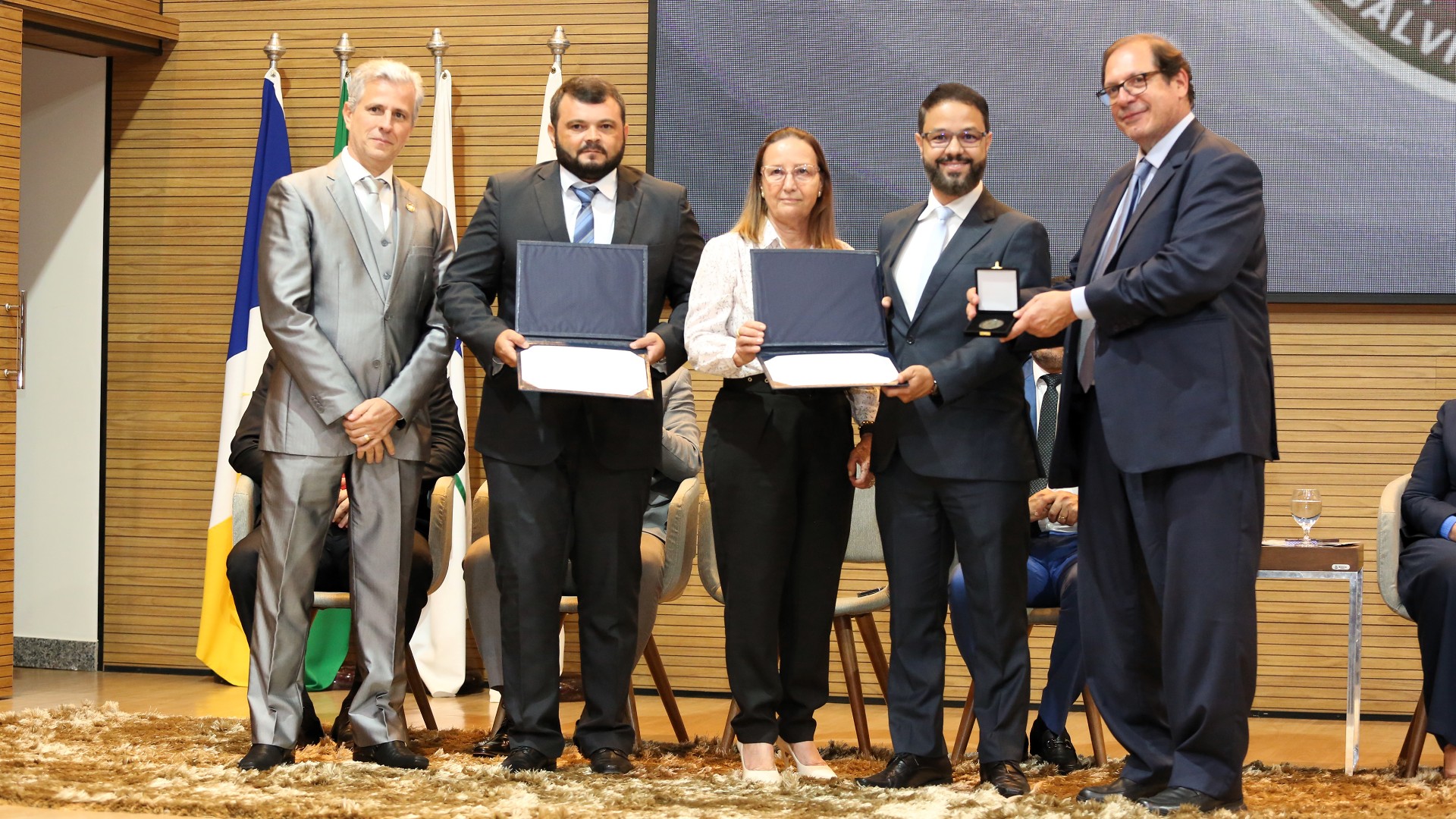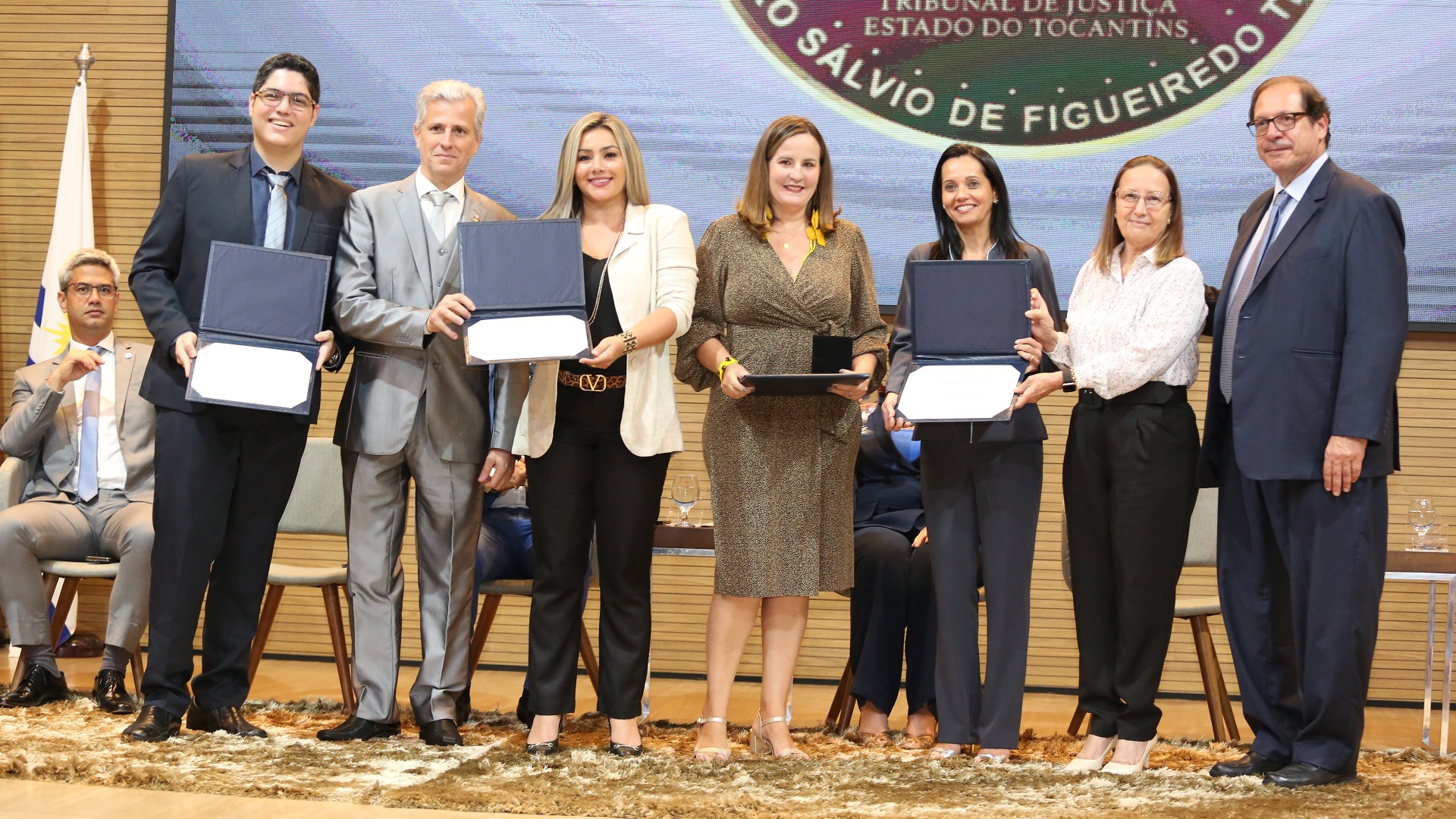
A night of celebration and recognition marked the presentation of the 3rd Minister Sálvio de Figueiredo Teixeira Judicial Management Award, held by the General Internal Affairs of Justice of the State of Tocantins (CGJUS) on Wednesday (February 7th), during the 3rd Meeting of Permanent Chiefs of Justice and the State Justice Department of the State of Tocantins (Encope). Demonstrating excellence and effectiveness within the First Degree of Jurisdiction of the State, magistrates and civil servers from the courts of Araguacema and Itacajá were awarded, respectively, for the "Caseara Digital Inclusion Point" and "Restorative Circles for Conflict Prevention Involving Indigenous Peoples" projects.
The "Caseara Digital Inclusion Point" project, authored by Magistrate Cledson José Dias Nunes and civil server Frederico Gomes Queiroz, from the district of Araguacema, won an award in the 1st District category. The initiative shortened the distance between the headquarter of the district and the municipality of Caseara - a 68 km path of dirt road - with the help of technology. Through a digital access point for holding hearings by videoconference, installed in partnership with the City Council, it is no longer necessary for the population of the city of Caseara to travel to the city of Araguacema, making access to the local justice system easier and more efficient. For Magistrate Cledson Nunes, the results of the action are being very positive and it is a satisfaction to have the practice recognized. "It's very gratifying that the practice we adopted has been recognized; who knows, maybe our experience will be replicated elsewhere. It didn't generate any costs for the Judiciary, since the room is on the premises of the Town Hall, and since we set up the inclusion point, no hearing has been canceled or rescheduled due to lack of people," he said.

In the 3rd Division category, the award went to the project on "Restorative Circles for Conflict Prevention Involving Indigenous Peoples", developed by the courts of Itacajá and Guaraí, authored by Magistrates Luciana Costa Aglantzaks and Gisele Pereira de Assunção Veronezi, and civil servers Carla Regina Nunes dos Santos Reis and Vitor Ferreira Guimarães Martins. The actions carried out through the Restorative Justice technique have brought guidance, empowerment and autonomy to the indigenous peoples; the aim is to contribute with alternatives for conflict prevention, which in the case of the Krahô ethnic group is focused on the over-indebtedness of the indigenous people.
Receiving the award for practicing the restorative circle was a source of great joy and gratitude for the magistrates responsible for the project. "I can only thank everyone involved, and I share the award with all the participants and the Krahô community, because it is a mission to look at others as if they were ourselves, so that we can live in a democratic and egalitarian society," said Judge Luciana Aglantzaks. "Supporting the project, as the then Coordinating Judge of CEJUSC/ Polo Guaraí, was a gift. I can only thank the TJTO and NUPEMEC for their unconditional support, so that practices like this can build a new vision of the Judiciary and foster restorative practices," added Judge Gisele.
A total of 15 practices were entered in the third edition of the award, covering topics such as social projects, restorative justice, sustainability, management, minority groups, therapeutic justice and notary management. For the coordinating Judge of the evaluation committee of the award, the CGJUS assistant Judge Esmar Custódio Vêncio Filho, the initiative of the General Internal Affairs is extremely important for sharing good practices and improving the delivery of justice. "This is a fair recognition of the work of Judges and civil servers who are dedicated to coming up with good ideas to put into practice in the Judiciary at state level, in order to make it easier to carry out our service, so as to promote quality and efficient judicial provision, always pointing to the side of our greatest interest, which is the Jurisdiction," he said.




